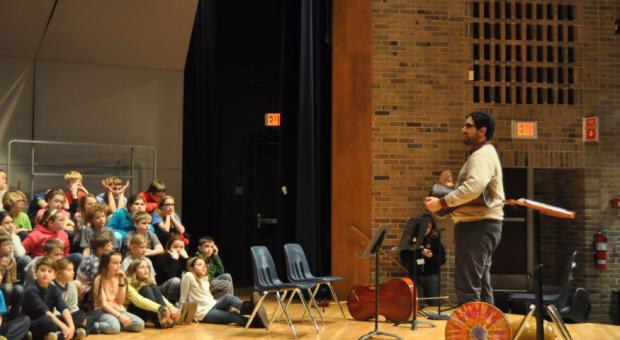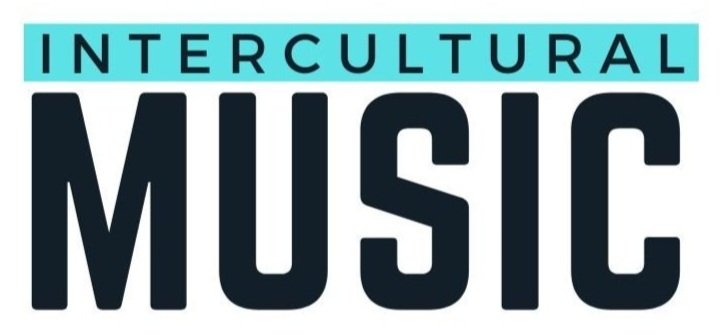ARTIST RESIDENCIES & WORKSHOPS
While assemblies are great introductory learning tools, in-depth immersion can be achieved by the study of a subject over the course of several weeks or months. Artist residencies provide hands-on training and step-by-step instruction building from the very basics to a working knowledge of the subject material.
Students will work toward creating a final project or performance to demonstrate what they have learned over the course of the residency. The skills attained during these residencies remain with students beyond the classroom often leading to further exploration and practice of the discipline. The artist residencies also address many of the educational standards for STEAM and ACTFL.
Not ready for a full program residency? Invite an individual artist to present a classroom workshop on a specialized topic from the list below. Workshops are a wonderful way for a classroom of students to have an intimate hands-on experience. Artists will bring in materials and resources pertinent to their field of expertise to share with the class. We can also work with teachers to create a custom workshop pertaining to a specific unit or curriculum of study.

RESIDENCY & WORKSHOP OFFERINGS:
Arabic Theater
Students will learn to combine elements of theatrical exercises and techniques, Arabic music and lyrics, as well as lessons from class. The program offers students the opportunity to write, speak, and act out skits in the Arabic language using both MSA and colloquial dialects. Throughout the residency, students will write and perform their own short skits in Arabic.
*All ages.
Arabic Calligraphy
We offer workshops on Arabic calligraphy. The course will focus on the use of the traditional reed pen (Qalam) for writing letters in the Thuluth style. Students will be taught the rules and techniques required to produce the shapes of the letters. They will also be introduced to connecting the letters to construct words in this style. By the end of the residency, students will be able to produce a piece of their own calligraphy art.
* Grades 9-12, material fees apply
Introduction to Arabic Poetry
Students will learn the flow of basic meters for Arabic poetry and fundamentals known as “A’roud Al Sha’ar”. The instructor will introduce classical and contemporary poetry appropriate for the class level. Students will learn how to create their own poetry with an enriched vocabulary and rhythm.
*Grades 9-12
Dabke – (Palestinian/Syrian/Lebanese Styles)
Our artists will present Levantine debka folk dance. Through listening samples and performance, students will explore debka from different regions with respect to their indigenous rhythms. A dance choreography will be taught to a short debka medley.
* All ages. Digital media player and auditorium or comparable large space required
Arabic Songs
Students will be taught to sing modern and traditional Arabic songs from various regions. Percussion can be provided as well as some instruments, depending on class size. Lyrics are written in Arabic with translations and transliterations. This workshop is an excellent way for the student to practice their spoken Arabic skills as well as learn a new colloquial vocabulary. Students who play instruments are encouraged to bring them to class on these workshop days.
* All ages. Digital media player required, material fee may apply.
Percussion of the Middle Eastern, North Africa, and Beyond
Students will learn the Arabic percussive alphabet and how to play the variety of Middle Eastern rhythms found in music from North Africa, Greater Syria, the Persian Gulf area, as well as Turkey and Greece. This interactive workshop will give students skills to learn how to accompany Middle Eastern music in its different forms. Students will compose their own percussion composition using the rhythms they have learned throughout the residency.
* All ages. Instruments provided, material fee applies
Mid-Eastern and South Asian Music and Rhythms - Students will learn how to speak the rhythms from these regions and hear how they fit in music and songs. The artists will demonstrates traditional percussive instruments from the Middle East and India. Students will also interact by singing along to the songs and putting to use the rhythms they have learned.
*All ages.
The World's Oldest Instruments: Drums and Flutes
The specialized workshop delves into two of the oldest instruments known throughout human history. Learn the history and evolution of various flutes and drums from different cultures. The presentation will include demonstrations of instruments along with explanations of their function and role in specific musical styles.
*All ages.
The Middle East Comes to Chicago
The World’s Columbian Exposition of 1893 was a milestone in Chicago history, and the exhibits from Egypt and Algeria and Tunisia were among the most popular. Students will make connections to Chicago and Arab culture by learning to dance to traditional music from North Africa. Dances may include the famous Raqs al-Assaya (an Egyptian stick dance derived from martial arts), Nubian dances to traditional music, or a Tunisian/Algerian scarf dance. Students and teachers may also choose to develop a slide show on the World’s Columbian Exposition of 1893, either as an Arabic language or history presentation.
* Grades 5-12. Digital media player and auditorium or comparable large space required.
From East to West: A Tidal Wave of Sound Around the World
Learn how the invention of the electric guitar and amplifier influenced music around the world. Discover the similarities and differences between music from the East and West. Through demonstration and listening samples, the artist and audience will explore how technology such as the Fender Twin Reverb Amp and electric guitar changed the way music was played around the world. Additionally, the artists will present how musical fusion occurs across cultures.
*All ages.
Introduction to Music Around the World
An interactive lecture demonstration about different musical cultures. The presentation features instruments, songs, languages, and images showing similarities and differences among the world's cultures.
*All ages.
Greek Folk Music Ensemble
Learn folk music from the various regions around Greece including the mainland and islands. The student musicians will learn repertoire, rhythms, and music theory from Greek music. Students will be able to perform Greek folk songs by the end of the residency.
*Grades 6-12 Instruments provided may have applicable fee
Middle Eastern Music Ensemble
Students who play instruments in a school program, or privately, are welcome to participate in the Arabic music ensemble. The student musicians will learn repertoire, rhythms, and music theory from the Middle East and North Africa. Students will be able to perform a piece of Arabic music by the end of the residency.
* Grades 6-12, instruments provided may have applicable fee
Near East Ensemble
Since early times from silk roads and spice bazaars to Andalusian mountains and Saharan stars, musical ideas, forms, and instruments were exchanged and have been evolving ever since. Discover the folk and classical repertoire of music from the Middle East, North Africa, and near eastern neighbors. Experiment with the Maqam (Middle Eastern scale system) and the dramatic rhythmic and melodic arrangements.
*Grades 6-12, instruments provided may have applicable fee
Mid-Eastern and Indian Music Theory Workshop - Learn music modes and rhythms from the Middle East and South Asia. Audiences will learn how to use maqam and raga scales to create melodies as well as iqa’ and tala to discover traditional rhythms. The presentation will feature a demonstration of traditional instruments as well as listening samples of South Asian and Middle Eastern music. Students will be encouraged to participate in singing, clapping, and playing on their instruments.
*Grades 6-12 and above.
